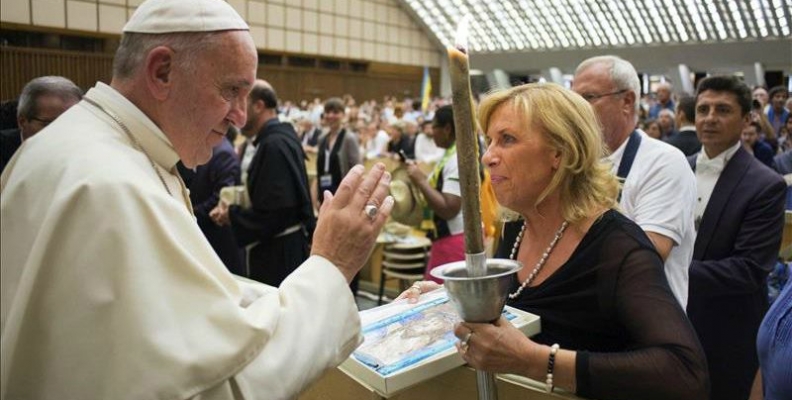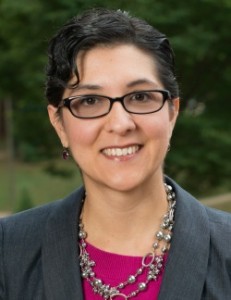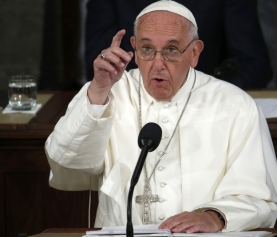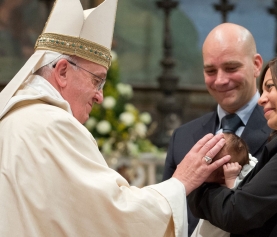
Melissa Moschella: Divorced and Remarried Catholics Need to Feel the Church’s Love and Acceptance
Pope Francis’s comments about divorced and remarried Catholics during his Aug. 5 audience generated some media buzz, including this interview that I did on WAMU’s Kojo Nnamdi Show. Given the controversial and timely nature of this topic, I thought it would be worth dedicating this post to reflecting on his words.
The Pope spoke about “wounded families” — in particular, cases in which the matrimonial bond has been sundered and a new union has been formed. The Pope reminded us that, though “such a situation is contrary to the Christian Sacrament,” the Church’s approach to those living in these circumstances “always draws from a mother’s heart,” seeking to understand, heal, and save. He encouraged all of us to be welcoming and compassionate to these families, especially for the sake of the children, noting that “they are the ones who suffer the most in these situations.” These children are especially in need of “an example of committed and exercised faith,” but we will not be able to provide this example “if we keep them at arm’s length from the life of the community, as if they are excommunicated.”
Here I think it’s worth clarifying a crucial point that many people do not fully understand: The inability to receive Communion does not imply that one is excommunicated. As Pope Francis emphasized during the audience, those “who have established a new relationship of cohabitation after the failure of the marital sacrament…are by no means excommunicated — they are not excommunicated! – and they should not be treated as such: they are still a part of the Church.” To be excommunicated is to be entirely outside the community of the Church, not merely to be unable to receive sacramental Communion due to an aspect of one’s moral life that is seriously contrary to the Church’s teachings.
As Benedict XVI put it during the 2012 World Meeting of Families, divorced and remarried Catholics “are not ‘excluded’ even though they cannot receive absolution or the Eucharist; … they are fully a part of the Church.” He goes on to say that these individuals “are participating in the Eucharist if they enter into a real communion with the Body of Christ. Even without ‘corporal’ reception of the sacrament, they can be spiritually united to Christ in his Body.” They can find meaning in the suffering inherent in their situation if “they come to see that suffering as a gift to the Church,” as “something that is experienced within the Church community for the sake of the great values of our faith.”
The Church, like Jesus her Founder, exists to save sinners, seeking gently yet firmly to help them amend their lives, welcoming and understanding them all the while. But as Pope Benedict XVI points out, it is not enough simply to say to those in a difficult marriage situation that “the Church loves them;” rather, “it is important that they should see and feel this love. I see here a great task for a parish, a Catholic community, to do whatever is possible to help them to feel loved and accepted.” This great task belongs to each and every one of us.
— Melissa Moschella is an assistant professor at The Catholic University of America School of Philosophy.








